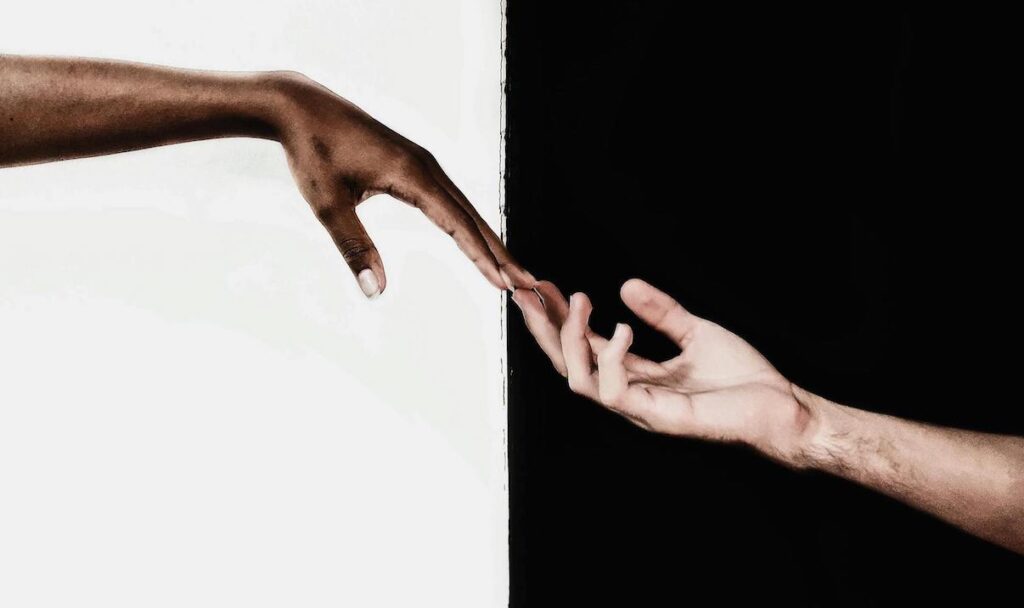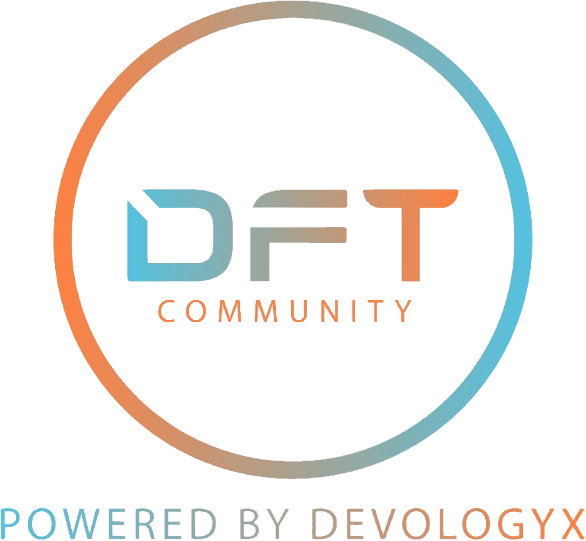
This important book is about the lifelong journey from ‘What will people think?’ to ‘I am enough’. The Gifts of Imperfection is a book written by Brené Brown. It’s a book about self-esteem and compassion. The author explains that to feel enough, you must be compassionate towards yourself and others and establish a genuine connection with people. Vulnerability is fully accepting who we are and not hiding it from others.
HOW THIS BOOK HELPED US?
This book also helped us understand the importance of regularly repeating affirmations for self-love. Acknowledging that we are imperfect beings and embracing who we mean, we must tell ourselves a different story. We have to rewrite our negative self-talk and start listening to the voice of self-compassion.

THE BOOK EXPLAINED UNDER 60 SECONDS
The Gifts Of Imperfection shows you how to embrace your inner flaws to accept who you are instead of constantly chasing the image of who you’re trying to be because other people expect you to act in specific ways.
TOP THREE QUOTES
“Fitting in is about assessing a situation and becoming who you need to be to be accepted. Belonging, on the other hand, doesn’t require us to change who we are; it requires us to be who we are.”
“Shame hates it when we reach out and tell our story. It hates having words wrapped around it- it can’t survive being shared. Shame loves secrecy. When we bury our story, the shame metastasises.”
“Perfectionism is self-destructive simply because there’s no such thing as perfect. Perfection is an unattainable goal.”
BOOK SUMMARIES AND NOTES
Courage, Compassion and Connection: The Gifts of Imperfection
Courage
Courage is one of the essential qualities that Wholehearted people have in common. And not just any kind of courage; I found that Wholeheartedness requires ordinary courage. Courage originally meant “To speak one’s mind by telling all one’s heart.” Heroic courage is often about putting our life on the line. Ordinary courage is about putting our vulnerability on the line. Courage has a ripple effect. Whenever we choose courage, we make everyone around us a little better and the world braver. And our world could stand to be a little kinder and more courageous.
Compassion
The more you practice generating compassion, the more you expect to experience the fear of your pain. Practising compassion involves learning how to relax and allow yourself to move gently toward what frightens you. One of the greatest (and least discussed) barriers to compassion practice is the fear of setting boundaries and holding people accountable. The better we accept ourselves and others, the more compassionate we become. If you’re going to practice acceptance and compassion, you need boundaries and accountability.
Connection
Connection is the energy between people when they feel seen, heard, and valued; when they can give and receive without judgment; and when they derive sustenance and strength from the relationship. Connection is critical for physical, emotional, spiritual and intellectual flourishing. The stronger your emotional connection to someone, the greater the mutual force. The connection we usually experience impacts the way our brain grows and performs. The congenital need for connection makes the outcome of disconnection more real and dangerous.
Favourite Quote of the chapter: “Until we can receive with an open heart, we are never really giving with an open heart. When we attach judgment to receiving help, we knowingly or unknowingly attach judgment to giving help.”
Cultivating Authenticity: Letting Go of What People Think
Authenticity is the daily practice of letting go of who we think we’re supposed to be and embracing who we are. Authenticity is a conscious choice of how you want to live. It involves a collection of options that you have to make every day. The choice to be honest, the selection to be natural or the choice to let your true self be seen. When you choose authenticity, you nurture the connection and sense of belonging that can only occur when you believe you’re enough. Choosing to be authentic can be challenging. The key to authenticity is juggling the need to be honest without making others uncomfortable. When you select authenticity, the people around you struggle to understand why and how you’re changing. Some worry, others fear, and some may find it inspirational. Most people have shame triggers around being considered self-indulgent or self-focused. They don’t want their authenticity to be perceived as selfish or narcissistic. The thing is … authenticity isn’t always the safe option. Sometimes choosing to be authentic over being liked is unsafe. It means getting out of your comfort zone. Making it easy to get knocked around while wandering through new territory. Sacrificing who we are for what other people think isn’t worth it. Yes, there can be authenticity growing pains for the people around us, but in the end, being true to ourselves is the best gift we can give the people we love.
Favourite Quote of the chapter: “To be nobody-but-yourself in a world which is doing its best, night and day, to make you everybody but yourself—means to fight the hardest battle which any human being can fight—and never stop fighting.”
Cultivating Self-Compassion: Letting Go of Perfectionism
Perfectionism is not the same as being the best. Where perfectionism exists, shame is always lurking. Shame is the birthplace of perfectionism. Perfectionism is a roadblock to authenticity because it is built on the false belief that if we are perfect, we will not suffer the shame or pain of others’ judgment. Perfectionism is not self-improvement. Perfectionism is, at its core, about trying to earn approval and acceptance. Most perfectionists were raised being praised for achievement and performance. To overcome perfectionism, you must acknowledge your vulnerabilities to the universal experiences of shame, blame and judgement. Develop shame resilience and practice self-compassion. Becoming more loving and compassionate with yourself and practising shame resilience will help you embrace your imperfections. Through the process of adopting your imperfections, you discover your most authentic gifts: courage, compassion and connection. Self-compassion has three elements: self-kindness, common humanity, and mindfulness.
Favourite Quote of the chapter: “A moment of self-compassion can change your entire day. A string of such moments can change the course of your life.”
Cultivating a Resilient Spirit: Letting Go of Numbing and Powerlessness
Resilience is the ability to overcome adversity. Resilient people are resourceful and possess strong problem-solving skills. They’re more likely to seek help. They hold the belief that they can do something that will help them to manage their feelings and to cope. Resilient people have something in everyday “spirituality.” Not the religious spirituality but rather the inextricable connectivity to each other by a power greater than us. Practising spirituality brings perspective, meaning, and purpose to your lives. Feelings of hopelessness, fear, blame, pain, discomfort, vulnerability, and disconnection sabotage resilience. The only experience that seems broad and fierce enough to combat a list like that is the belief that we’re all in this together and that something greater than us can bring love and compassion into our lives. Resilience derives from exercising hope. Although hoping is regularly seen as an emotion related to situations beyond our abilities, hope has instead been a process in mind that could be practised and learned.
Favourite Quote of the chapter: “Spirituality is recognising and celebrating that we are all inextricably connected to each other by a power greater than all of us and that our connection to that power and to one another is grounded in love and compassion. Practising spirituality brings a sense of perspective, meaning, and purpose to our lives.”
Cultivating Gratitude and Joy: Letting Go of Scarcity and Fear of The Dark
It is reasonable that you’ll be happier when you appreciate everything you own instead of when you cry for not having sufficient. This appreciation, similar to hope, has not been an unintentional emotion; however, it is a mentality that could be practised consciously. Gratitude without practice may be like faith without works— it’s not alive. Being joyful doesn’t imply that you’re happy all the time. But instead, you’re grateful for the happy moments that you have. Joy comes from gratitude, not the other way around. Joy seems a step beyond happiness. Happiness is a sort of atmosphere you can live in sometimes when you’re lucky. Happiness is tied to circumstance, and joyfulness is to spirit and gratitude. Neither joy nor happiness is constant. No one feels happy all of the time or joyful all of the time. Many people have experienced being on the edge of joy only to be overcome by vulnerability and thrown into fear. Until you can tolerate exposure and transform it into gratitude, intense feelings of love often bring up the fear of loss. These are anxious and fearful times, both of which breed scarcity. We’re afraid to lose what we love the most, and we hate that there are no guarantees. We think not being grateful and not feeling joy will hurt it less. We believe we’ll suffer less if we can beat vulnerability to the punch by imaging loss. We’re wrong. Between abundance and scarcity, there is sufficiency. It isn’t a measure of barely enough or more than enough. Sufficiency isn’t an amount at all. It is an experience, a context we generate, a declaration, a knowing that there is enough and we are enough.
Favourite Quote of the chapter: “The dark does not destroy the light; it defines it. It’s our fear of the dark that casts our joy into the shadows.”
Cultivating Intuition and Trusting Faith: Letting Go of The Need For Certainty
Intuition is not independent of any reasoning process but rather a rapid-fire, unconscious associating process. The brain makes an observation, scans it and matches it with the existing memories and knowledge. Once it puts together the matches, you understand what you’ve observed. Sometimes your intuition or gut tells you what you need to know; other times, it steers you toward fact-finding and reasoning. What usually silences that intuitive voice is your need for certainty. People like certain things and guarantee that they ignore the outcomes of our brain’s matching process.
As you can see, intuition is more than just accessing the answers from within. Sometimes, tapping into our inner wisdom tells us that we don’t know enough to decide without more investigation. Faith and reason are not natural enemies. Our human need for certainty and to “be right” have pitted faith and reason against each other almost recklessly. We force ourselves to choose and defend one way of knowing the world at the expense of the other. Faith is a place of mystery, where we find the courage to believe in what we cannot see and the strength to let go of our fear of uncertainty.
Favourite Quote of the chapter: “Intuition is not a single way of knowing—it’s our ability to hold space for uncertainty and our willingness to trust the many ways we’ve developed knowledge and insight, including instinct, experience, faith, and reason.”

HOW THIS BOOK CAN HELP SOFTWARE DEVELOPERS
In “The Gifts of Imperfection,” Brené Brown explores how embracing vulnerability and imperfection can lead to a more authentic and fulfilling life. Although The Gifts of Imperfection is not dedicated to software development, its principles can be applied to the industry. Software development is a highly collaborative and often fast-paced field, which can create a culture of perfectionism and fear of failure. Developers can create a more positive and productive work environment by accepting imperfection and vulnerability. This can lead to increased creativity, innovation, and risk-taking, which are essential to developing successful software. Additionally, the book emphasises the importance of self-care and self-compassion, which can help prevent burnout and increase overall well-being for developers.


